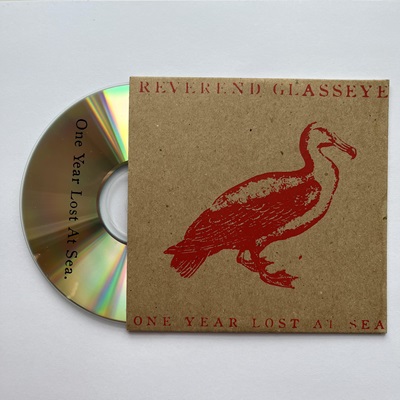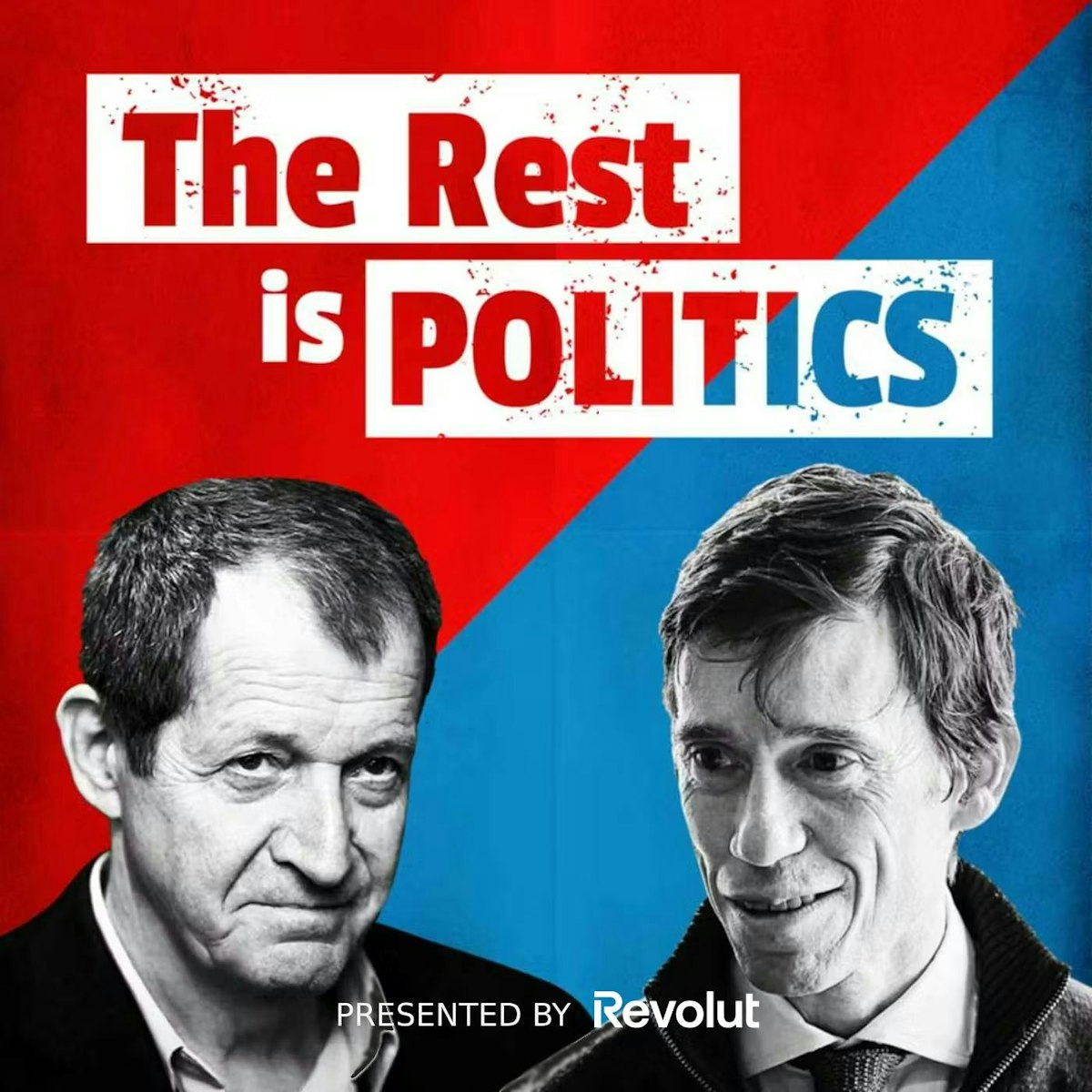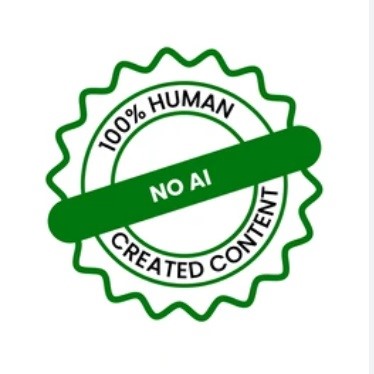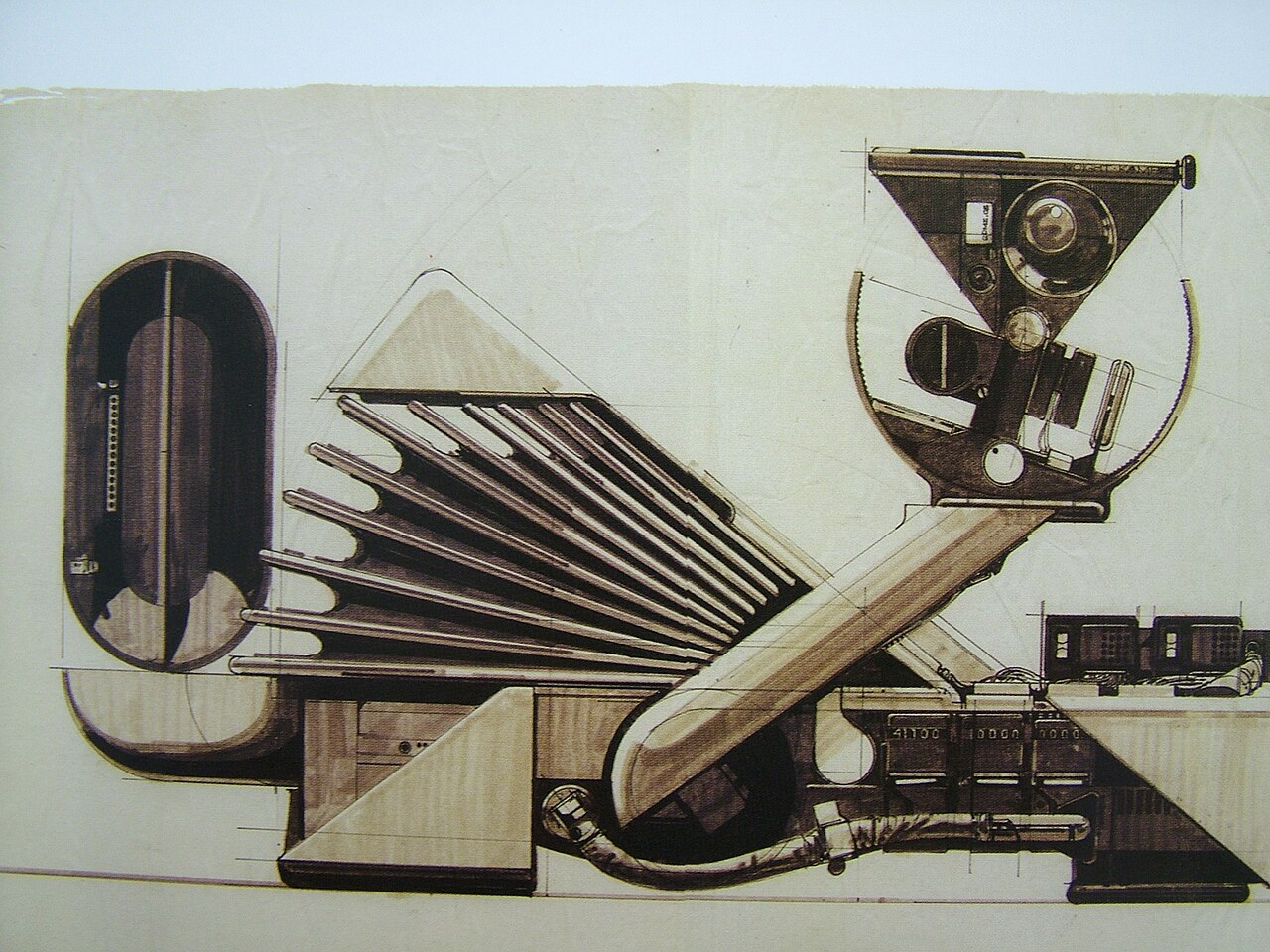 We Swedes have such a love and fascination with American culture. This trend accelerated after WWII. Music, movies, cars, clothes, food, drink and you name it. Even the obscure gothic country genre has found its way over here (a strong but limited interest). However, plastic couch covers never made it over the ocean. Their purpose is to protect the couch. In my ignorance I thought that it was to protect the couch when you were away (just as furniture dust covers in the Victorian era). However, the plastic covers were never taken off. You were supposed to sit on the plastic cover(!). Plastic couch covers peaked in the 1960-70s. It's assocíated with a frugal older generation. In those days, buying a couch wasn't a spontaneous buy on credit. Money was saved and a lot of time was put in to find the the right size, shape and style. Once bought, the first thing to do was to place a plastic cover over it. Obviously, there's a trade-off between aesthetics and utility. On the downside, you slided about for a while before the plastic had adjusted and the cover made a characteristic sound when you sat down. You couldn't feel the fabric. The seating comfort and visual impression clearly fell by the wayside. On the upside: you could see the fabric. The couch was protected, thus lengthening the life of the couch and maximizing its utility. In the best of worlds, the couch could be passed on to the next generation (we shouldn't exaggerate the demand for this). Younger generations have a more healthier, yet pragmatic, approach. We buy a couch for the comfort and without a protection plan.
We Swedes have such a love and fascination with American culture. This trend accelerated after WWII. Music, movies, cars, clothes, food, drink and you name it. Even the obscure gothic country genre has found its way over here (a strong but limited interest). However, plastic couch covers never made it over the ocean. Their purpose is to protect the couch. In my ignorance I thought that it was to protect the couch when you were away (just as furniture dust covers in the Victorian era). However, the plastic covers were never taken off. You were supposed to sit on the plastic cover(!). Plastic couch covers peaked in the 1960-70s. It's assocíated with a frugal older generation. In those days, buying a couch wasn't a spontaneous buy on credit. Money was saved and a lot of time was put in to find the the right size, shape and style. Once bought, the first thing to do was to place a plastic cover over it. Obviously, there's a trade-off between aesthetics and utility. On the downside, you slided about for a while before the plastic had adjusted and the cover made a characteristic sound when you sat down. You couldn't feel the fabric. The seating comfort and visual impression clearly fell by the wayside. On the upside: you could see the fabric. The couch was protected, thus lengthening the life of the couch and maximizing its utility. In the best of worlds, the couch could be passed on to the next generation (we shouldn't exaggerate the demand for this). Younger generations have a more healthier, yet pragmatic, approach. We buy a couch for the comfort and without a protection plan.
 All things come to those who wait. Anyway, that is what people tell you in your hour of need. In truth, in most cases you are waiting in vain. I have waited ten years for a physical copy of "One Year Lost At Sea", read more here (opens in a new window). This isn't just any hard-to-find album. The difficulty level is insane. Only 100 cdr copies were made, which were sold at concerts in the Boston, MA area. I live in Sweden, a remote country far away from where it - however unlikely - could be found. I have never seen it for sale. Until recently. Now, I have a copy of my own (numbered 91/100). Well, I didn't see that coming. I'm overwhelmed and find it hard to take it in. Maybe I deserve to succeed for my efforts, but it defies all statistical probability. "One Year Lost at Sea" is placed as number 1 on my list "10 rarest albums in the gothic country genre", read more here (opens in a new window). Hard-to-find albums is a chapter in itself and goes beyond the scope of this blog post. What makes an album rare? Firstly, the number of copies. Secondly, if it's a self-released demo or debut album (often co-varies with number of copies). Thirdly, the demand for the album (always co-varies with number of copies). There are 100 copies of "One Year Lost At Sea". It's Reverend Glasseye's "fourth" album (a demo). That being said, even an obscure cdr album could have its hard-core collectors willing to pay top-dollar for a copy (two interested buyers is enough to drive the price upwards). I practise several search methods. Systematic and random trawling is one of them. Monitoring through wantlists, wishlists and saved searches is another. Contacting, stalking and harassing people is a third method. Adding to this, you should be mentally prepared to accept adversities and challenges with a resilient mindset. When it comes to albums in the gothic country genre I have been equipped with the patience that withstands a comparison with Job.
All things come to those who wait. Anyway, that is what people tell you in your hour of need. In truth, in most cases you are waiting in vain. I have waited ten years for a physical copy of "One Year Lost At Sea", read more here (opens in a new window). This isn't just any hard-to-find album. The difficulty level is insane. Only 100 cdr copies were made, which were sold at concerts in the Boston, MA area. I live in Sweden, a remote country far away from where it - however unlikely - could be found. I have never seen it for sale. Until recently. Now, I have a copy of my own (numbered 91/100). Well, I didn't see that coming. I'm overwhelmed and find it hard to take it in. Maybe I deserve to succeed for my efforts, but it defies all statistical probability. "One Year Lost at Sea" is placed as number 1 on my list "10 rarest albums in the gothic country genre", read more here (opens in a new window). Hard-to-find albums is a chapter in itself and goes beyond the scope of this blog post. What makes an album rare? Firstly, the number of copies. Secondly, if it's a self-released demo or debut album (often co-varies with number of copies). Thirdly, the demand for the album (always co-varies with number of copies). There are 100 copies of "One Year Lost At Sea". It's Reverend Glasseye's "fourth" album (a demo). That being said, even an obscure cdr album could have its hard-core collectors willing to pay top-dollar for a copy (two interested buyers is enough to drive the price upwards). I practise several search methods. Systematic and random trawling is one of them. Monitoring through wantlists, wishlists and saved searches is another. Contacting, stalking and harassing people is a third method. Adding to this, you should be mentally prepared to accept adversities and challenges with a resilient mindset. When it comes to albums in the gothic country genre I have been equipped with the patience that withstands a comparison with Job.
 "The endless babble of nothingness". This is a good example of accurate one-liners in the podcast "The Rest Is Politics". The podcast was launched in 2022 and has become one of the leading political podcasts in the United Kingdom. It's hosted by Alastair Campbell and Rory Stewart. Campbell is a journalist and political strategist known for his work as communications chief for Tony Blair (labour). Stewart is an academic, author, former diplomat and politician and has served as secretary and minister under Theresa May (conservative). Their aim is to "disagreeing agreeably". The quality of the podcast is outstanding. Despite their political differences they often agree in their analysis. They are also extremely harsh judges of character. If someone is talented, average or a tent revival clown, they say so. All delivered in a mix of eloquence and clarity. "The Rest Is Politics" is educating and entertaining. In fact, at times it's hilarious. I laugh right out loud when I listen to the podcast in my headphones. I'm ambivalent when it comes to politics in general and to Swedish politics in particular. I like the game, but can't stand the players. The bar for entry in politics is low. If you just hang around, it will eventually be your turn. Politics seems to attract a particular type of person (student council president). They are advised not to be themselves and speak their mind. It could be to their disadvantage. At the same time, many politicians are too media trained to be truly relatable. The political debates are just unbearable. It's sand-box-level where representatives of various political parties are speaking at the same time and deliberately choose to misinterpret each other. I reach for the remote control to change channel or turn off the TV. However, I like Swedish political podcasts. Or more correctly, I used to like them. The podcasts started out with high energy and a fresh take on politics, but now they have all deteriorated. The preparations and current shape vary and there's no consistent quality. In comparison, the Swedish podcasts lack the political and analytical edge. With a few exceptions, it's amateur hour with all that implies. Recently, they have begun to cross-reference and recycle each others content: "As podcast X discussed bla bla", "This issue was also covered by podcast Y bla bla", "This question was highlighted by podcast Z bla bla". This must be the lowest form of political journalism. I don't think I can go back to Swedish political podcasts again.
"The endless babble of nothingness". This is a good example of accurate one-liners in the podcast "The Rest Is Politics". The podcast was launched in 2022 and has become one of the leading political podcasts in the United Kingdom. It's hosted by Alastair Campbell and Rory Stewart. Campbell is a journalist and political strategist known for his work as communications chief for Tony Blair (labour). Stewart is an academic, author, former diplomat and politician and has served as secretary and minister under Theresa May (conservative). Their aim is to "disagreeing agreeably". The quality of the podcast is outstanding. Despite their political differences they often agree in their analysis. They are also extremely harsh judges of character. If someone is talented, average or a tent revival clown, they say so. All delivered in a mix of eloquence and clarity. "The Rest Is Politics" is educating and entertaining. In fact, at times it's hilarious. I laugh right out loud when I listen to the podcast in my headphones. I'm ambivalent when it comes to politics in general and to Swedish politics in particular. I like the game, but can't stand the players. The bar for entry in politics is low. If you just hang around, it will eventually be your turn. Politics seems to attract a particular type of person (student council president). They are advised not to be themselves and speak their mind. It could be to their disadvantage. At the same time, many politicians are too media trained to be truly relatable. The political debates are just unbearable. It's sand-box-level where representatives of various political parties are speaking at the same time and deliberately choose to misinterpret each other. I reach for the remote control to change channel or turn off the TV. However, I like Swedish political podcasts. Or more correctly, I used to like them. The podcasts started out with high energy and a fresh take on politics, but now they have all deteriorated. The preparations and current shape vary and there's no consistent quality. In comparison, the Swedish podcasts lack the political and analytical edge. With a few exceptions, it's amateur hour with all that implies. Recently, they have begun to cross-reference and recycle each others content: "As podcast X discussed bla bla", "This issue was also covered by podcast Y bla bla", "This question was highlighted by podcast Z bla bla". This must be the lowest form of political journalism. I don't think I can go back to Swedish political podcasts again.
 AI is here to replace you. So far, it seems that we safely can get back to sleep. There are obvious teething problems. Stilted AI-written pieces or AI-created images of people with extra limbs and fingers are some examples. However, many AI-advocaters argue that we should sleep with one eye open. The machine-learning is improving by the minute. AI is coming for you and your job. The next victim to the slaughter is music. This fact divides people. Some people argue that, throughout the ages, musicians have been "influenced" by and "borrowed" from each other. There's nothing new. AI just makes it much easier. Other people (here I include myself) argue that AI is different. Before AI, no matter of how influenced you were or how much you borrowed, you still had to put in the hours to make it yours. That is, if you had any artistic ambitions. Nowadays, the "influencing" and "borrowing" have turned into "stealing". The AI-advocaters like to think of it as a "democratization" of music (you don't have to be a musician to make music, or content as they like to call it). There are other unresolved issues. AI companies train their generative AI models on songs without their rightsholders permission. We will see how this plays out. I come to think of the rock band Queen, who on their early albums in their liner notes proclaimed that "no synthesizers were used". Contrary to popular belief, Queen didn't hate synthesizers. They just wanted to emphasize that the sound came from Brian May's guitar. Man and machine in a perfect symbiosis. Most musicians have been through enough the last two decades with restructuring of the industry and horrendous new business models. Will AI be the straw that breaks the camel's back? Maybe or maybe not. In the not too distant future record albums will be labeled "no AI was used" as a statement. This is going to be a mark of quality. Of course, if there are any musicians still around.
AI is here to replace you. So far, it seems that we safely can get back to sleep. There are obvious teething problems. Stilted AI-written pieces or AI-created images of people with extra limbs and fingers are some examples. However, many AI-advocaters argue that we should sleep with one eye open. The machine-learning is improving by the minute. AI is coming for you and your job. The next victim to the slaughter is music. This fact divides people. Some people argue that, throughout the ages, musicians have been "influenced" by and "borrowed" from each other. There's nothing new. AI just makes it much easier. Other people (here I include myself) argue that AI is different. Before AI, no matter of how influenced you were or how much you borrowed, you still had to put in the hours to make it yours. That is, if you had any artistic ambitions. Nowadays, the "influencing" and "borrowing" have turned into "stealing". The AI-advocaters like to think of it as a "democratization" of music (you don't have to be a musician to make music, or content as they like to call it). There are other unresolved issues. AI companies train their generative AI models on songs without their rightsholders permission. We will see how this plays out. I come to think of the rock band Queen, who on their early albums in their liner notes proclaimed that "no synthesizers were used". Contrary to popular belief, Queen didn't hate synthesizers. They just wanted to emphasize that the sound came from Brian May's guitar. Man and machine in a perfect symbiosis. Most musicians have been through enough the last two decades with restructuring of the industry and horrendous new business models. Will AI be the straw that breaks the camel's back? Maybe or maybe not. In the not too distant future record albums will be labeled "no AI was used" as a statement. This is going to be a mark of quality. Of course, if there are any musicians still around.
 Blade Runner is a great science fiction film. It's an adaptation of Philip K. Dick's 1968 novel Do Androids Dream of Electric Sheep? The film is set in a dystopian future Los Angeles, in which replicants are bio-engineered to work on space colonies. A group of replicants escapes back to Earth, seeking to extend their lifespans. A blade runner reluctantly agrees to hunt them down and take them out of circulation. They are believed to be a threat to humanity. The replicants are almost identical replicas of human beings. But how do you detect a replicant? The Voight-Kampff (VK) is a polygraph-like machine used by blade runners to determine whether an individual is a replicant. It measures bodily functions such as respiration, blush response, heart rate and eye movement in response to questions dealing with empathy. The VK test comprises mathematical, linguistic and behavioural multiple-choice questions. The internet is overflowing with VK questions, for example "You’re in a desert walking along in the sand when all of the sudden you look down, and you see a tortoise, it’s crawling toward you. You reach down, you flip the tortoise over on its back. The tortoise lays on its back, its belly baking in the hot sun, beating its legs trying to turn itself over, but it can’t, not without your help. But you’re not helping. Why is that?" The VK test should not be confused with the polygraph (lie detector) test. The polygraph has a range of accuracy that is estimated to be between 80 and 90 percent (more likely lower). The term accuracy is misleading since there's no way of knowing if the examinee is lying or not (in most cases it can't be tested). Generally, there's little evidence that tests can accurately detect lies. In 1986 and 1991, CIA employee and Soviet spy Aldrich Ames passed two polygraph examinations with flying colours. The advanced trick? By being calm and relaxed. Could the VK test be circumvented? Humans pass the test by nature of being human. A functioning sociopath or psychopath (a person with just enough empathy to get along in society) would still show up as human. Replicants are not able to pass the test. But, who knows? Whenever everything else fails, a spirited appearance, small talk and a forced smile could be a good strategy. Just like a regular job interview except that the consequences could be life-changing.
Blade Runner is a great science fiction film. It's an adaptation of Philip K. Dick's 1968 novel Do Androids Dream of Electric Sheep? The film is set in a dystopian future Los Angeles, in which replicants are bio-engineered to work on space colonies. A group of replicants escapes back to Earth, seeking to extend their lifespans. A blade runner reluctantly agrees to hunt them down and take them out of circulation. They are believed to be a threat to humanity. The replicants are almost identical replicas of human beings. But how do you detect a replicant? The Voight-Kampff (VK) is a polygraph-like machine used by blade runners to determine whether an individual is a replicant. It measures bodily functions such as respiration, blush response, heart rate and eye movement in response to questions dealing with empathy. The VK test comprises mathematical, linguistic and behavioural multiple-choice questions. The internet is overflowing with VK questions, for example "You’re in a desert walking along in the sand when all of the sudden you look down, and you see a tortoise, it’s crawling toward you. You reach down, you flip the tortoise over on its back. The tortoise lays on its back, its belly baking in the hot sun, beating its legs trying to turn itself over, but it can’t, not without your help. But you’re not helping. Why is that?" The VK test should not be confused with the polygraph (lie detector) test. The polygraph has a range of accuracy that is estimated to be between 80 and 90 percent (more likely lower). The term accuracy is misleading since there's no way of knowing if the examinee is lying or not (in most cases it can't be tested). Generally, there's little evidence that tests can accurately detect lies. In 1986 and 1991, CIA employee and Soviet spy Aldrich Ames passed two polygraph examinations with flying colours. The advanced trick? By being calm and relaxed. Could the VK test be circumvented? Humans pass the test by nature of being human. A functioning sociopath or psychopath (a person with just enough empathy to get along in society) would still show up as human. Replicants are not able to pass the test. But, who knows? Whenever everything else fails, a spirited appearance, small talk and a forced smile could be a good strategy. Just like a regular job interview except that the consequences could be life-changing.
